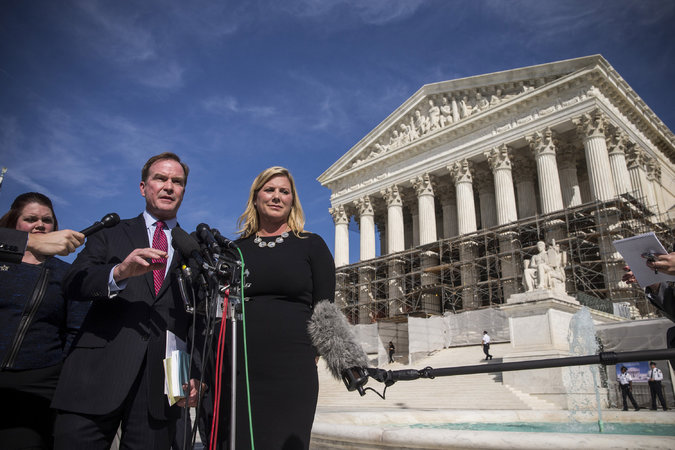Supreme Court Upholds Michigan’s Affirmative Action Ban
< < Go Back
The Supreme Court on Tuesday upheld a Michigan voter initiative that banned racial preferences in admissions to the state’s public universities.
“This case is not about how the debate about racial preferences should be resolved,” Justice Anthony M. Kennedy wrote in a controlling opinion joined by Chief Justice John G. Roberts Jr., and Justice Samuel A. Alito Jr. “It is about who may resolve it. There is no authority in the Constitution of the United States or in this court’s precedents for the judiciary to set aside Michigan laws that commit this policy determination to the voters.”
Justice Sonia Sotomayor read an impassioned dissent from the bench. She said the initiative put minorities to a burden not faced by other applicants to college.
“The Constitution does not protect racial minorities from political defeat,” she wrote. “But neither does it give the majority free rein to erect selective barriers against racial minorities.” Justice Ruth Bader Ginsburg joined the dissent.
In earlier cases, including one from June concerning the University of Texas, the court has said that race-conscious admissions policies can be constitutionally permissible in states that wish to use them. The new decision concerned the question of whether and how voters may prohibit affirmative action programs.
The vote in the case, Schuette v. Coalition to Defend Affirmative Action, No. 12-682, was 6-2. Justice Elena Kagan recused herself, presumably because she had worked on the case as United States solicitor general.
The Michigan initiative, known as Proposal 2, was a response to Grutter v. Bollinger, a 2003 Supreme Court decision that upheld the use of race as one factor among many in law school admissions to ensure educational diversity.
Proposal 2, approved in 2006 by 58 percent of Michigan’s voters, amended the state Constitution to prohibit discrimination or preferential treatment in public education, government contracting and public employment. Groups favoring affirmative action sued to block the part of the law concerning higher education.
In 2012, the United States Court of Appeals for the Sixth Circuit, in Cincinnati, ruled by a vote of 8 to 7 that the initiative violated the federal Constitution’s equal protection clause. The appeals court majority said the problem with the law was that it restructured the state’s political process by making it harder for disfavored minorities to press for change.
More From The New York Times:




